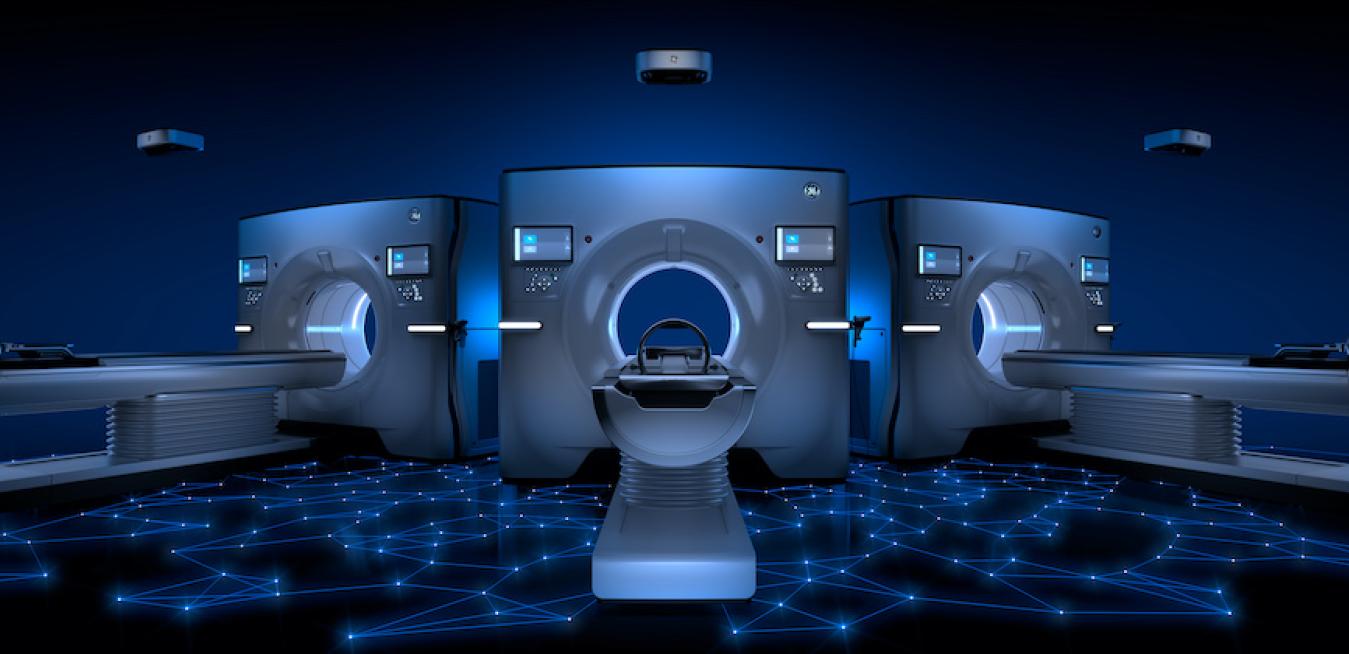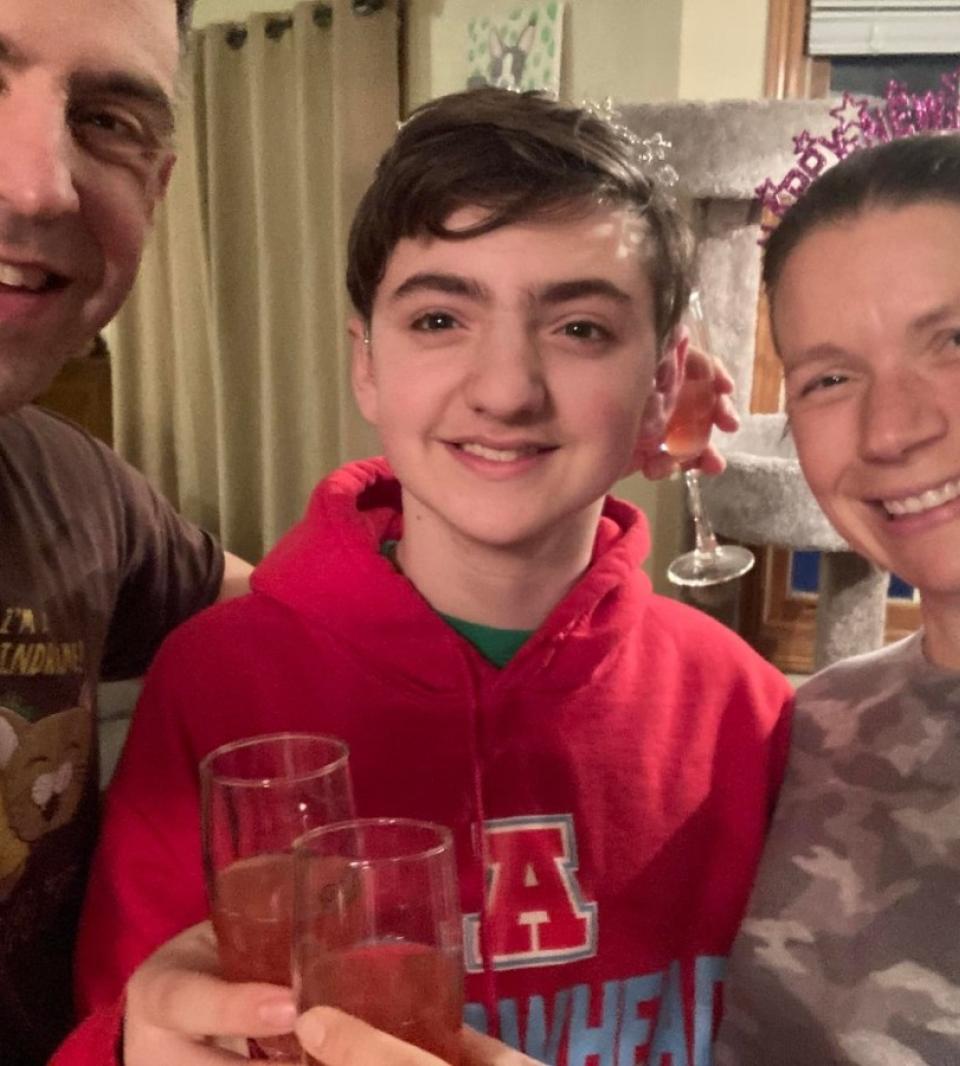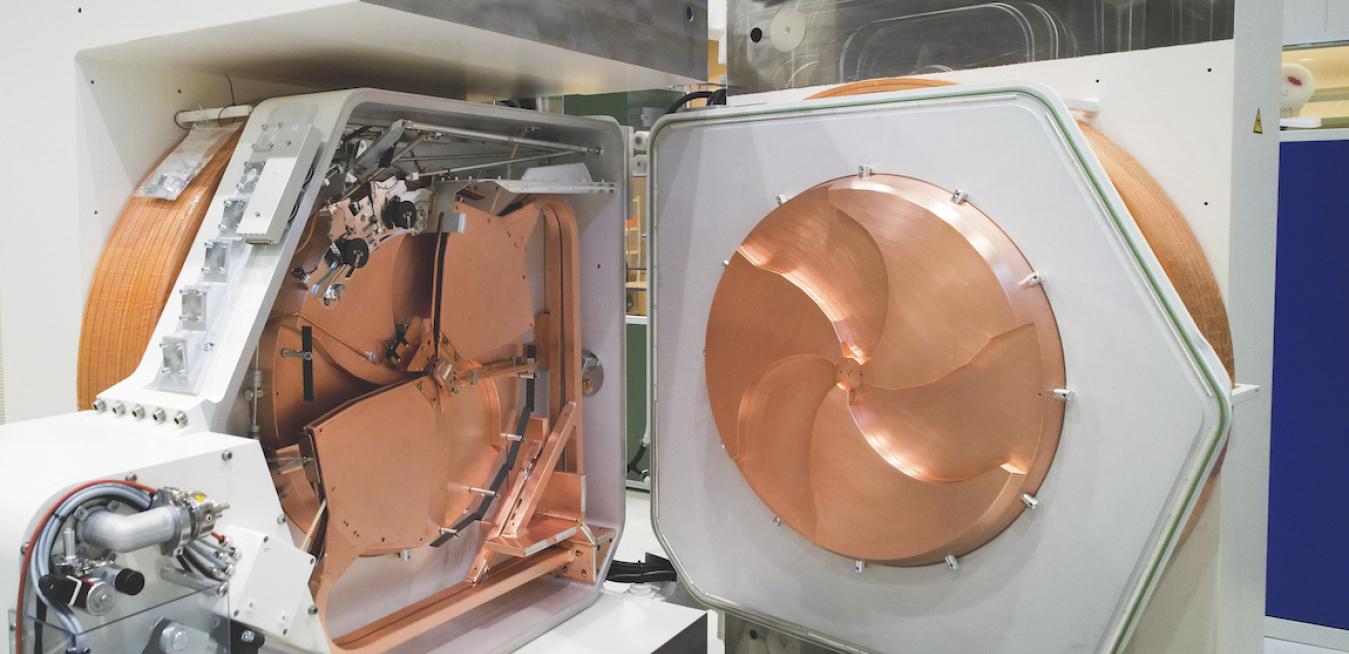Chicago/Stockholm - May 9, 2022: GE Healthcare is proud to announce that it has entered into an agreement to collaborate with RaySearch Laboratories AB (publ), a leading radiation oncology software provider, to develop a new radiation therapy simulation and treatment planning workflow solution, designed to simplify how radiation will be targeted to shrink a tumor.
As the healthcare industry feels the pressure of burgeoning costs and staff shortages, rapid advances in technology are playing a vital role in delivering efficient clinical care, from discovery and diagnosis to targeted treatment planning.
While the pandemic has left many hospitals struggling to meet backlogged demand, the benefits of the acceleration it prompted in digital healthcare and cutting-edge medical imaging technology are here to stay.
Mark Frontera always felt that his work mattered. As a mechanical engineer and then a lab manager at GE Research in Niskayuna, New York, he studied how to improve X-ray technology that could one day help doctors diagnose patients sooner and treat them more effectively.
Every morning, a charter jet takes off from Helsinki, Finland, bound for Örebro, Sweden. Its cargo: radiotracers. These radioactive compounds are essential for molecular imaging scans, which reveal metabolic processes inside cells. Radiologist and nuclear medicine physician Håkan Geijer and his colleagues at Örebro University Hospital depend on positron emission tomography (PET) scans to diagnose disease — like cancer — and, perhaps most critically, identify the best course of treatment.
Chicago/Stockholm: April 5, 2022 – GE Healthcare and Elekta (EKTA-B.ST) announced today that they have signed a global commercial collaboration agreement in the field of radiation oncology, enabling the two companies to provide hospitals a comprehensive offering across imaging and treatment for cancer patients requiring radiation therapy.
As hospitals increasingly seek flexible and interoperable simulation and guidance technology, GE Healthcare and Elekta aim to meet the major need for radiotherapy solutions across both developed and developing markets.
business unit
tags
Over the past two decades, World Cancer Day, which falls on Feb. 4, has become an important day for patients and for clinicians alike. This year, the Union for International Cancer Control, which organized the initiative, will launch a new three-year campaign aimed at bringing together individuals, organizations and governments to create awareness and help close the gap in cancer care. “By 2030, it is estimated that 75% of all premature deaths due to cancer will occur in low- and middle-income countries,” said Anil d’Cruz, the union’s president.
- Theragnostics’ novel PET tracer, GalliProst, will help visualize prostate cancer to enable personalized treatment.
- The two companies will leverage their combined scientific, commercial and market access expertise to work towards a commercial launch.
Chalfont St Giles, UK – October 9th 2019 – GE Healthcare and Theragnostics have entered into a global commercial partnership for a new Prostate-Specific Membrane Antigen (PSMA) PET/CT imaging agent.
For media inquiries, please contact:
David MorrisCommunications Director, Pharmaceutical Diagnostics
GE Healthcare
+44 7920591370
[email protected]
Europe/London
business unit
tags
Last year, GE Healthcare and Roche announced that they would collaborate to create clinical decision support solutions on shared digital platforms for so-called “precision health” in oncology and critical care, to be powered by data and smart algorithms.
Scientists found a way to translate brain signals into “synthetic speech,” doctors can detect ovarian tumors the size of a poppy seed, and researchers using one of the world’s fastest computers modeled a DNA sequence of more than a billion atoms. Oh, and FYI: the U.S. Navy received a patent for technology that seems fit for powering a UFO, or something that certainly looks like one. All that and more in this week’s coolest scientific discoveries!
A new device could bring DNA analysis to the bedside, 3D-printed tumors could help doctors attack cancer, and a know-it-all sensor that listens to electricity could spot a short in your home before you lose power. This week’s science news haul is pretty powerful.











